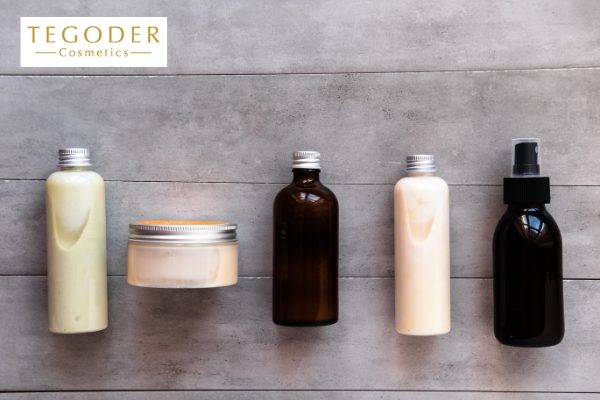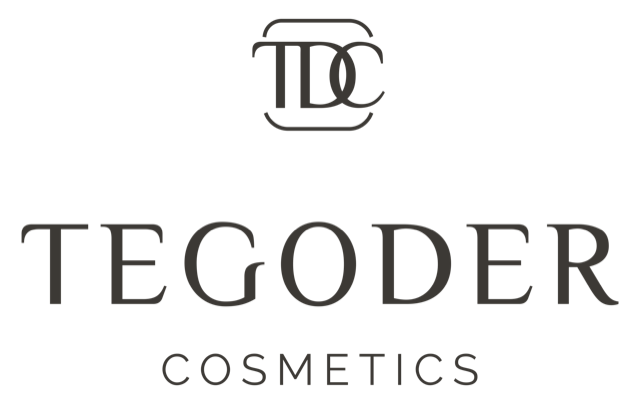Are parabens safe for the skin?

With so many different ingredients being added to beauty products, it can be hard to keep track of which ingredients are great for your skin and which ones may be harming instead.
There are a variety of synthetic ingredients being used in beauty products and some of them have come under fire for potentially being harmful for us.
You will have noticed across your beauty products that many of them are paraben free. The problem with parabens is a bit more confusing - there is no black and white with these ingredients and that’s what we’ll look into in more detail.
What are parabens?
Parabens are essentially a type of preservative that were created around the 1950s.
You will come across parabens in your everyday products such as shampoos, moisturisers, mascaras and many more.
The commonly used parabens have different names and if any of the following are listed in the ingredient section of your product, it most certainly contains parabens: Butylparaben, Methylparaben, Propylparaben, Isobutylparaben, Propylparaben and Ethylparaben. A single product can contain more than one type of paraben.
Why are parabens used in skincare?
Parabens are used in many skincare and beauty products in order to prolong the shelf life of these products as well as preventing the growth of mould in them. These paraben preservatives help to keep products as fresh as possible.
Some might believe that a product that is natural and paraben free may not be as effective as a product that contains parabens. This is why certain companies may still continue to use parabens in their products. Truthfully, many products contain parabens because they are very cheap to mass-market and produce.
Are parabens good or bad for your skin?
There has been quite a lot of research done to understand whether parabens are good or bad for your skin.
Some say it is no longer necessary to use parabens because there are better and more effective preservatives out there that have been created.
Those with sensitive skin may prefer to use products that are paraben free and contain no artificial ingredients - as these ingredients can sometimes cause irritation on sensitive skin.
Legislation which approves the use of parabens in cosmetics is still in effect by the European legislation that regulates all cosmetics and toiletries. So, parabens are still safe to use according to this legislation but many still have their doubts.
Studies conducted, showed that parabens get easily absorbed by your skin and stay in your body tissue. Parabens were also said to be detected in the breast tissues of patients with breast cancer.
It also depends on the quantity of parabens being used in the product. A small amount will not do any harm but when larger amounts of parabens are absorbed by skin and enter the body, they can interfere with your hormone functions. Parabens mimic estrogen by binding to estrogen receptors on cells. Research has shown that this can sometimes trigger reactions such as increasing breast cell division and the growth of tumors.
This is why many regulatory bodies in different countries regulate the concentration of parabens in the products.
It should also be noted that most of these studies conducted on parabens, there were varying amounts of parabens used, often higher doses. Many cosmetics and skincare products will usually have less than 1% of parabens in order to preserve their products.
Another factor to take in is that in some studies, lab animals were fed parabens rather than being applied parabens topically - as we do with our makeup and skincare.
Why do some products avoid parabens?
Due to the varying information on parabens out there, it is natural for many to want to avoid parabens especially if it is something they do not understand. EU legislation approves the use of parabens but then some countries take further action and ban certain types of parabens for children.
Many beauty and skincare brands want to avoid the doubts altogether and choose to be paraben-free. Many ethical brands choose to become paraben-free so that they only use the best natural ingredients for their customers.
Also, with so much information and studies conducted on parabens, they are now largely seen as being negative thus brands do not want to associate that negativity with their products and thus they opt for more natural ingredients.
One other thing to note is that just because a product might claim to be paraben-free, that does not prevent the company from adding other potentially harmful ingredients which may cause your skin some irritation.
Are parabens bad for the environment?
Parabens could also potentially be harmful to the environment around us. One scientific study reported that parabens had been found inside the bodies of marine mammals. These parabens have likely been ingested by them because of the products we use that are then washed into the sewage system.
Alternatives to Parabens
If you are unsure of whether parabens are good or bad for you or simply do not want to take the chance then there are plenty of free paraben free products out there for you.
Alternatives to parabens include ingredients such as sodium benzoate or potassium sorbate for hair products and salicylic acid, benzoic acid, sorbic acid for skincare products.
Products that come in airtight packaging are also good as it minimises the risk of bacteria growth.
Some of these paraben free, natural or organic products may have shorter expiry dates and thus it’s important to keep an eye out as it tells you how many months it’s good to use the product after opening it.
Here at Tegoder, we are proud to say that all of our products are paraben free. We use only the best and natural ingredients for our skincare products to ensure your skin receives the care it requires.
Final Takeaway
Whilst parabens have been given a bad name by some, they have been known to effectively preserve both makeup and skincare products.
Looking to go paraben free? Take a look at our skincare products which are all paraben free and packed with the highest quality ingredients.
Leave a comment